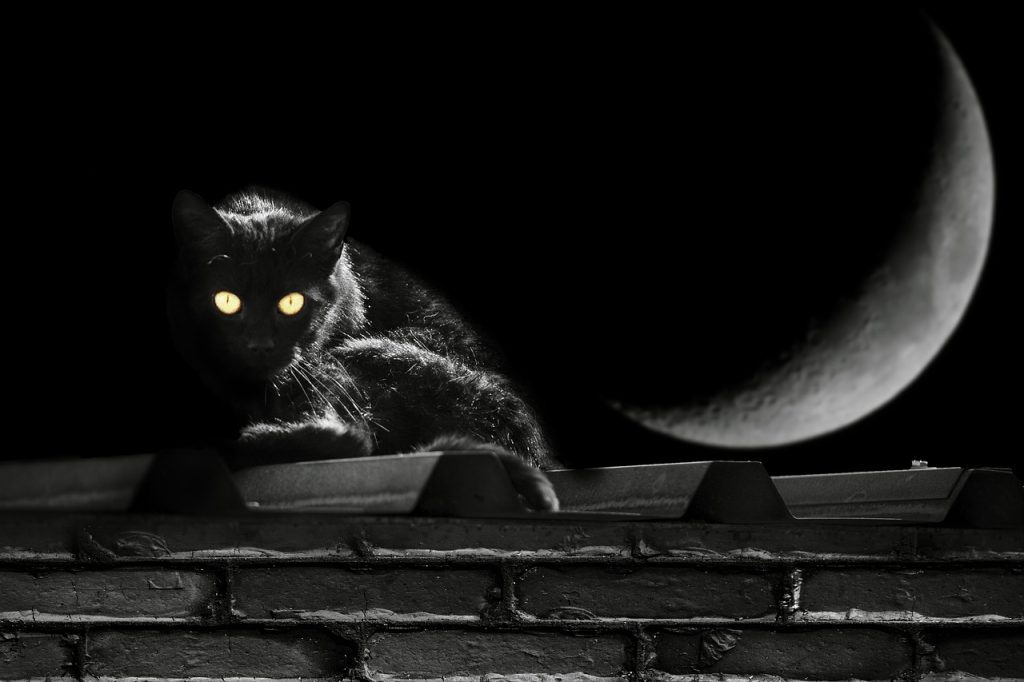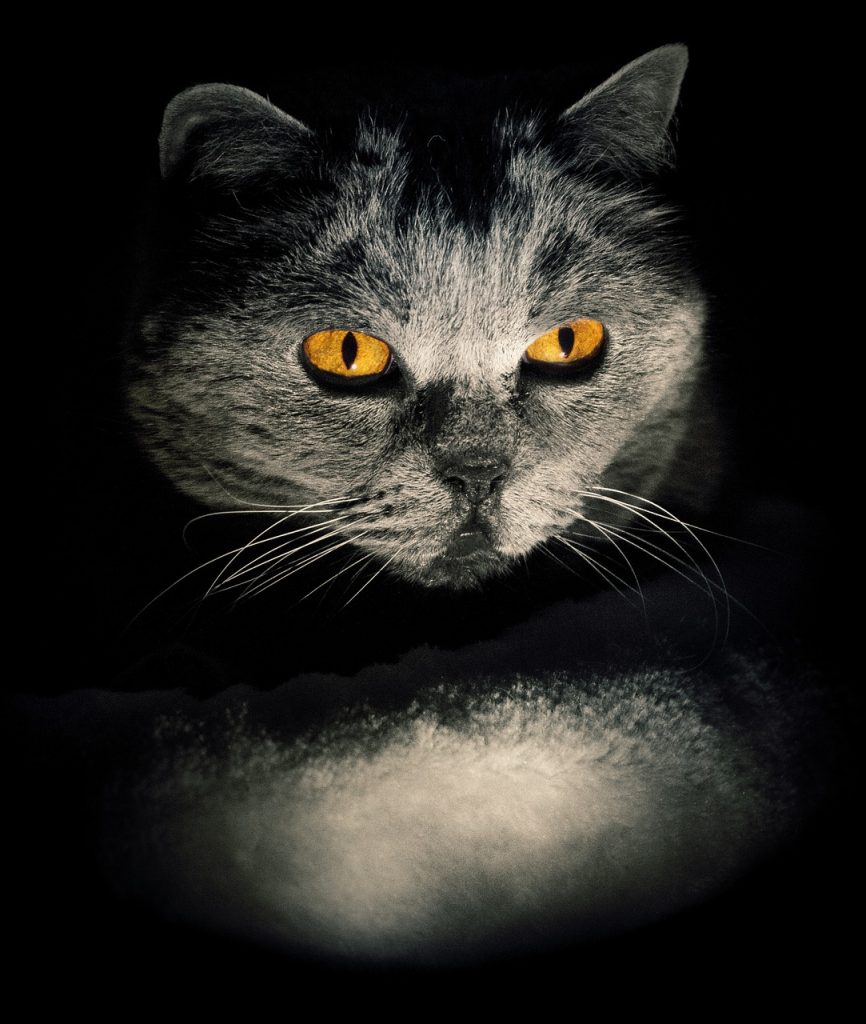Why cats eyes glow in the night? Do you know that dog, cat eyes glow at night but human eyes do not. What is the scientific explanation? Let’s find it with Askerweb today
Have you ever seen a pair of glowing eyes in the dark? The sight can be quite eerie, but it’s actually a natural phenomenon that happens to many animals, particularly dogs and cats. But why do their eyes glow in the dark while ours do not? In this article, we will explore the scientific explanation behind this intriguing phenomenon.

Firstly, it’s essential to understand that the eyes of dogs, cats, and other animals that glow in the dark, such as wolves and raccoons, have a special reflective layer called the tapetum lucidum. This layer is located at the back of the eye, behind the retina. The tapetum lucidum works by reflecting light back through the retina, giving the animal’s eyes a glowing appearance in low light conditions.
In contrast, human eyes do not have a tapetum lucidum. Instead, we have a layer of cells called the choroid that absorbs excess light, preventing it from reflecting back through the retina. This is why our eyes do not appear to glow in the dark.
So, why do dogs, cats, and other animals have a tapetum lucidum? The main reason is that it enhances their vision in low light conditions. By reflecting light back through the retina, the tapetum lucidum allows these animals to see better in the dark. This is particularly useful for nocturnal animals that hunt or move around at night, such as cats and wolves.
In addition to enhancing their night vision, the tapetum lucidum also helps animals to see in low light conditions during the day. This is because it allows more light to enter the eye, increasing the animal’s overall visual sensitivity. As a result, animals with a tapetum lucidum are better able to detect movement and distinguish objects in low light conditions.

However, the tapetum lucidum does have some drawbacks. One of these is that it can cause an effect called “eyeshine.” This occurs when the light from a flashlight or car headlights reflects off the tapetum lucidum and back towards the observer, creating a bright and sometimes disorienting reflection. This is why you might sometimes see a pair of glowing eyes staring back at you when you shine a light into the darkness.
Another potential drawback of the tapetum lucidum is that it can reduce an animal’s visual acuity in bright light conditions. This is because the reflective layer can scatter and distort light, leading to a loss of clarity and sharpness. However, for animals that primarily rely on their vision in low light conditions, this is a trade-off that they are willing to make.
In conclusion, the reason why dogs, cats, and other animals’ eyes glow in the dark is due to a special reflective layer called the tapetum lucidum. This layer enhances their vision in low light conditions by reflecting light back through the retina, giving their eyes a glowing appearance. While the tapetum lucidum has some drawbacks, it is a useful adaptation for animals that hunt or move around at night. So, the next time you see a pair of glowing eyes in the dark, remember that it’s a natural and fascinating phenomenon that has evolved to help animals survive and thrive in their environments.





